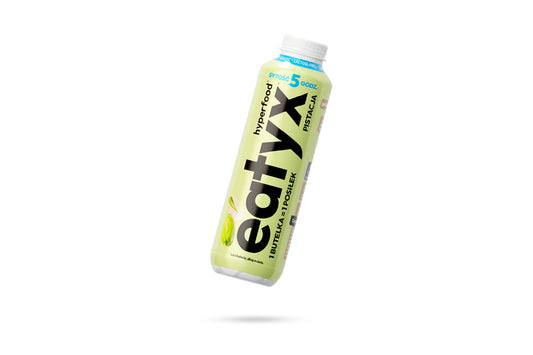Collagen for athletes is a key component supporting the musculoskeletal system, contributing to faster recovery and joint protection. Intense training places strain on structures such as tendons and ligaments, so strengthening them is fundamental to injury prevention. Understanding the mechanisms by which this protein works allows you to incorporate it into your diet in a conscious and effective way.
The role of collagen in the body of an active person
Collagen is the primary structural protein of connective tissue, constituting approximately 30% of all proteins in the human body. For physically active individuals, its role is invaluable, as it creates a structural framework for skin, bones, tendons, cartilage, and ligaments. During intense exercise, these components of the musculoskeletal system are subjected to significant strain and micro-injuries. Proper collagen levels ensure their elasticity and strength, which is crucial for maintaining full performance and preventing injuries. Adequate collagen intake for athletes supports natural repair processes.
The effect of collagen on muscle and joint regeneration
Collagen supplementation in athletes can significantly accelerate recovery after physical exercise. Providing the body with hydrolyzed collagen peptides stimulates cells such as fibroblasts and chondrocytes to increase their own collagen production. This translates into more effective regeneration of damaged muscle fibers and joint structures. Regular collagen supplementation can alleviate joint pain associated with physical activity and reduce stiffness, allowing for a faster return to full training form and maintaining a continuous athletic cycle.
The most important types of collagen for athletes
Nearly 30 types of collagen have been identified in the human body, but from an athlete's perspective, type I is of primary importance. It is the dominant building block of tendons, ligaments, and bones—structures directly exposed to training stress and requiring the greatest strengthening. Type II collagen, concentrated primarily in joint cartilage, plays a distinct role, responsible for its cushioning. Bovine collagen is a valuable source for active individuals and athletes, as it is rich in type I collagen, as well as type III, which supports muscles and blood vessels. This profile provides comprehensive support for the musculoskeletal system.
Does collagen supplementation reduce the risk of injury?
Regularly supplementing your diet with collagen can play a significant role in preventing sports injuries. By strengthening the structure of tendons and ligaments, it increases their resistance to the forces exerted during dynamic movements such as jumping or sprinting. Supplementing with collagen peptides, especially when combined with vitamin C, stimulates the synthesis of this protein in tissues, making them more flexible and resistant to tears and strains. This effect is particularly important in sports requiring high joint usage, where the risk of injury is increased.
When and how to take collagen for best results?
To maximize the potential of collagen supplementation, regularity is key. It's recommended to take the supplement daily, not just on training days. Consuming a serving of collagen approximately 40–60 minutes before planned physical activity can increase its transport to target tissues and stimulate synthesis during exercise. It's also important to combine it with vitamin C, which is essential for the body's production of this protein. This allows the active ingredients to be used more effectively to strengthen and rebuild the musculoskeletal system.
How to choose the best collagen supplement for an athlete?
When choosing collagen for athletes, it's important to pay attention to its form and composition. Hydrolyzed collagen, or collagen peptides, are characterized by the best bioavailability. Thanks to their low molecular weight, they are easily absorbed from the gastrointestinal tract and transported to target tissues. It's worth looking for products with good ingredients, a good example being eatyx collagen , which provides high-quality hydrolyzed peptides, ensuring optimal effectiveness and support for the athlete's body.
Other ingredients that support collagen function
The effectiveness of collagen supplementation can be enhanced by combining it with other nutrients. Vitamin C is essential, as a cofactor in the collagen synthesis process. B vitamins offer equally important support. They play a key role in proper energy metabolism, helping to convert nutrients into fuel for working muscles. Furthermore, vitamins such as B2, B6, and B12 contribute to reducing tiredness and fatigue, which is crucial for post-workout recovery. They also support the functioning of the nervous system, which is subjected to significant stress in athletes.
To comprehensively care for an athlete's body, it's worth supplementing their diet with other specialized products. Eatyx offers a wide range of supplements designed for active individuals. Their product range includes protein boosters that support muscle building and accelerate post-workout recovery. Meals in the form of bars also complement the offering , providing a quick and convenient source of fuel essential during prolonged physical activity.
Be sure to read our article on what to eat after training .




